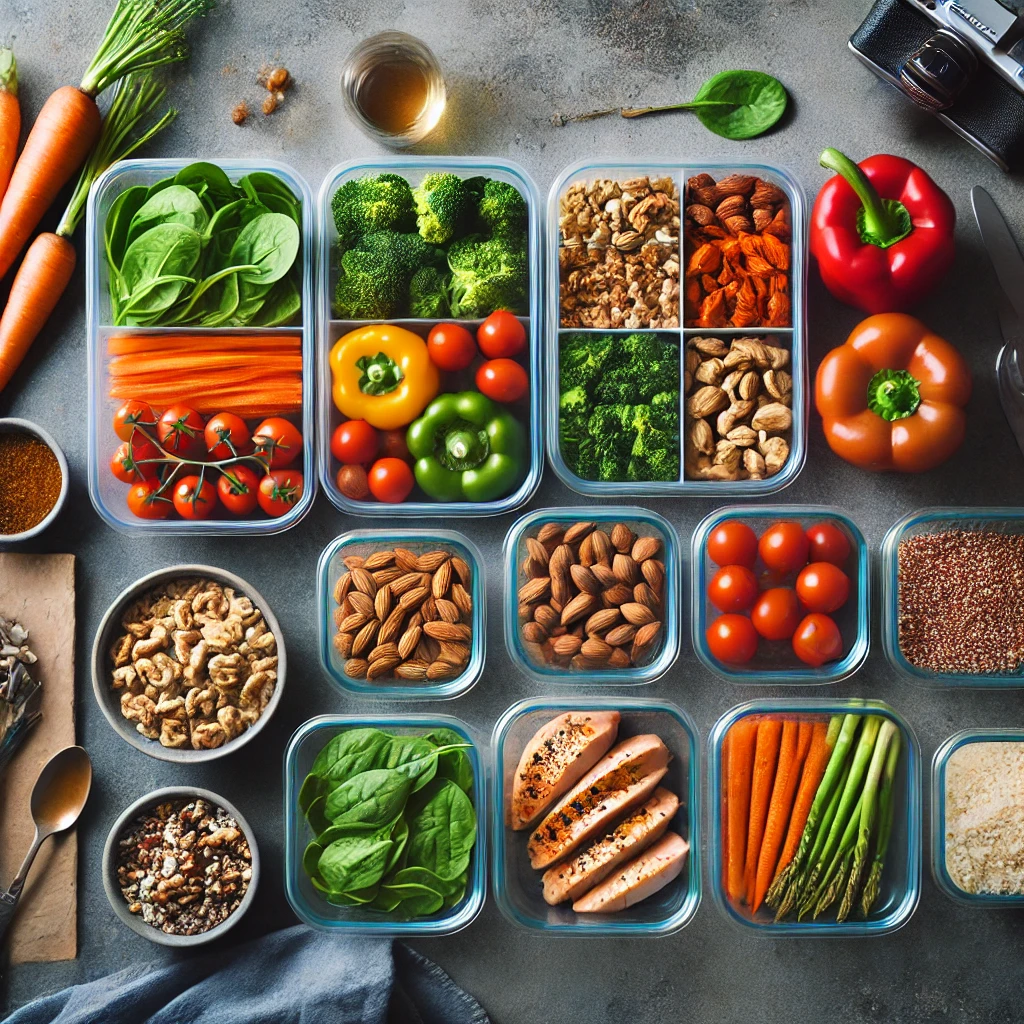Living alone comes with a lot of freedom—you get to eat what you want, when you want, and how you want. But it also presents some challenges, especially when it comes to maintaining a healthy diet. Without shared meal routines, it’s easy to skip meals or rely on quick, unhealthy options. The good news? Eating healthy while living solo is totally possible with a little planning and creativity.
In this guide, we’ll explore six practical ways to ensure your meals are nutritious, delicious, and hassle-free. Whether you’re a student, a busy professional, or simply enjoying your independent lifestyle, these tips will help you maintain a balanced diet effortlessly.

1. Plan and Prepare Your Meals
Meal planning is key to staying on track with healthy eating. Dedicate a few minutes each week to outline your meals and create a grocery list based on your plan. Batch-cook meals in advance and store them in portioned containers for easy access. This not only saves time but also reduces the temptation of opting for unhealthy takeout.
Quick Tip: Look up weekly meal plans from nutritionists for inspiration!
2. Shop Smart and Stock Up Wisely
Make every grocery trip count by focusing on nutritious, long-lasting ingredients. Stock up on pantry staples like whole grains, beans, and nuts. Opt for frozen fruits and vegetables—they’re just as nutritious as fresh produce and have a longer shelf life. Additionally, buying single-serve packs of dairy, nuts, and snacks can help with portion control and reduce food wastage.
Pro Tip: Stick to a shopping list to avoid impulse buys and stay within budget.
3. Follow a Balanced Diet
Eating healthy doesn’t have to be complicated. Aim for balanced meals that include protein, healthy fats, and complex carbohydrates. Fill your plate with colorful vegetables, lean meats, whole grains, and good fats like avocado or nuts. Also, make it a habit to eat mindfully—avoid distractions like your phone or TV while eating to prevent overeating.
Stay Hydrated: Often, thirst is mistaken for hunger. Keep a water bottle handy to stay hydrated throughout the day.
4. Master the Art of Cooking for One
Cooking solo doesn’t mean spending hours in the kitchen. Keep it simple with easy, one-pot meals, stir-fries, and salads. Repurpose leftovers creatively—turn grilled chicken into a wrap or add roasted veggies to your morning omelet. Investing in small kitchen appliances like an air fryer, slow cooker, or single-serve blender can make cooking for one more convenient and enjoyable.
Kitchen Hack: Pre-chopped veggies and ready-to-cook protein sources can speed up meal prep.
5. Snack Smartly
Snacking is where many people go wrong. Instead of reaching for chips and sugary treats, stock up on healthy snacks like nuts, Greek yogurt, hummus with veggies, or homemade energy bars. Pre-portion your snacks into small containers to avoid mindless eating.
Best Healthy Snacks: Almonds, cottage cheese, peanut butter with apples, roasted chickpeas, and dark chocolate (in moderation).
6. Make Healthy Eating Enjoyable
Healthy eating doesn’t mean boring meals. Spice things up by trying new recipes, joining online cooking classes, or even organizing potlucks with friends. If cooking daily feels like a chore, explore meal delivery services that offer fresh, home-cooked food. The key is to make the process enjoyable so that maintaining a healthy diet feels effortless.
Final Thought: Eating well is an investment in your health. A little effort in the kitchen today can lead to more energy, better mood, and improved well-being tomorrow.
